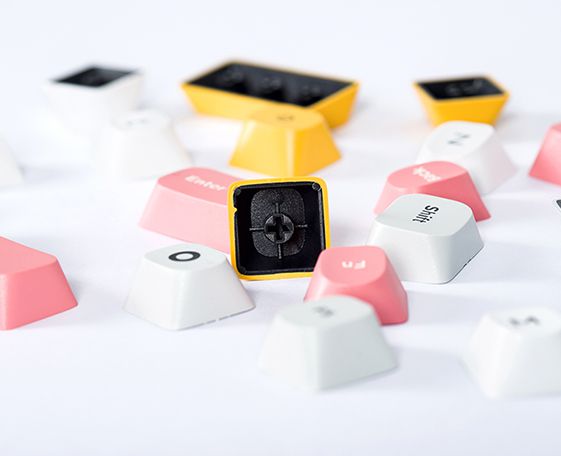We attach great importance to customers' needs for product quality and rapid production.
We always insist that meeting customers' needs is to realize our value!
+86 133 9281 9446
At KAIERWO , we specialize in high-quality custom injection molding and mold tool making.Injection molding is by far the industry’s most common way to manufacture plastic parts, especially when mass production.We provide custom molding for 50 to 100,000+ injection-molded parts as well as a wide range of other manufacturing and finishing services to complete your project.
Injection molding is an excellent option for the large-scale production of plastic parts and components. After all, there’s a reason why so many high-tech companies worldwide use it for producing parts.
Efficiency
The mold injection process is highly efficient, allowing large orders to be produced quickly.
Superior detail
The high pressure of injection ensures that the melted material reaches every crevice of the mold before curing. This enables design engineers to incorporate complex geometrics and intricate elements into their designs.
Affordability
Fast and efficient production ensures a low cost per part, while high production volumes produce further economies of scale. Aluminum is a common material used for injection molding, a cost-effective and readily available material, can be used for injection mold tools to control costs.
High-volume production
Injection molding with steel molds can facilitate mass production of parts into the millions.
High tensile strength
Injection-molded parts may be reinforced by adding fillers into the liquid resin, improving tensile strength.
Ready-to-go finish
With the proper treatment, injection-molded parts come out of the mold with a smooth finish that requires no further refinement.If you need to print a logo or leave a mark on the parts, our surface finishing service can help you!
Get a quote now
Why should you choose us as your injection molding supplier? Here are the top 3 reasons:


Experienced Engineers
Our injection molding engineers have rich experience after handling thousands of projects; whichever parts they come across, they can get the correct parameters immediately.
Advanced Facilities
We can make the most precise moldings using imported and top-brand local injection molding machines.
Unlimited Capacities
Full fleets of metal and plastic injection molding machines, from 10 to 1000 tons are ready for your orders without delay.
In any injection molding project, crucial decisions must be made before the molding process begins.
The workflow often goes like this:
Select the material: Material selection is the first step when preparing for injection molding. Product designers will typically consider specific injection molding materials when designing a new product. And if they are unsure, making rapid prototypes is the best way to test out different material options.
Confirm the quantity: It is crucial to discuss the proposed number of molded parts to be produced at the outset. The number of shots will determine the type of mold used: a prototype mold or a high-volume production mold.
Mold flow analysis: Injection molding mold flow analysis software provides a simulation report. The report predicts factors like part warpage and cooling channel efficiency and ultimately helps manufacturers avoid mistakes. In the event of a negative report, the design can be changed to improve the injection molding process.
Create the mold: Mold making is a specialist process. These days, molds are often made via CNC machining and EDM since these processes can quickly produce highly detailed metal molds.
Start injection molding: Once the mold is ready to go, the injection molding process can begin.
Plastic injection molding is the process of filling a mold tool with liquid plastic resin under great pressure. The tool may comprise a single cavity or hundreds of cavities in order to make indefinite numbers of parts. Once the mold tools have been carefully designed and manufactured, the molding process consists of the following basic steps:
01
The plastic resin comes in raw pellets. These are dried to the right moisture content, and then if necessary they can be blended with pigments or master batch colorants to create the correct color for the design.
02
The dried pellets are poured into the hopper of the molding machine. A reciprocating screw inside the barrel of the machine is used to transport these pellets towards the mold while at the same time heating them.
03
Within the barrel, the pellets are mixed and heated until fully molten, forming the liquid resin.
04
The heated mold closes automatically and resin, under great pressure, is injected through a gate and into the mold cavity.
05
The mold is cooled in a short amount of time to solidify the part inside.
06
The mold opens and the part is ejected to begin a new cycle.
How long does it take to make an injection mold tool?
This depends on the complexity of the tool design and the type of material the tool is made from. Generally speaking, a very basic square shape made from relatively soft steel such as P20 can be made in less than one week. Very hard steels take longer to cut and to heat treat, while complex shapes or advanced surface textures can require three or more weeks to prepare.
What should you expect from a plastic mold manufacturer?
A reputable manufacturer will positively identify all incoming raw materials, and will carefully control every stage of production to ensure process repeatability. Full ISO certification is a good demonstration of their commitment to excellence.
How can I reduce mold costs?
A product developer should be looking to save money on the cost of a mold tool. In most cases, a less expensive tool is going to be of poorer quality, less durable, with looser tolerances and a bad surface finish. These are not cost-savings. Instead, they’re expensive mistakes. Rather, savings can be made long-term through production efficiency, fast cycle times, and process stability. As volumes increase, the relative cost of the tool goes down until it’s almost free.
What types of tools and resins do you offer?
We make tools and dies from S136H, 2316H, H13 hardened, 2316H, P20, 8407, and NAK80 semi-hardened steels. We offer standard SPI finishes, EDM texturing, and several different types of etched textures. We also have thousands of thermoforming plastics available – contact us for details.
We attach great importance to customers' needs for product quality and rapid production.
We always insist that meeting customers' needs is to realize our value!














